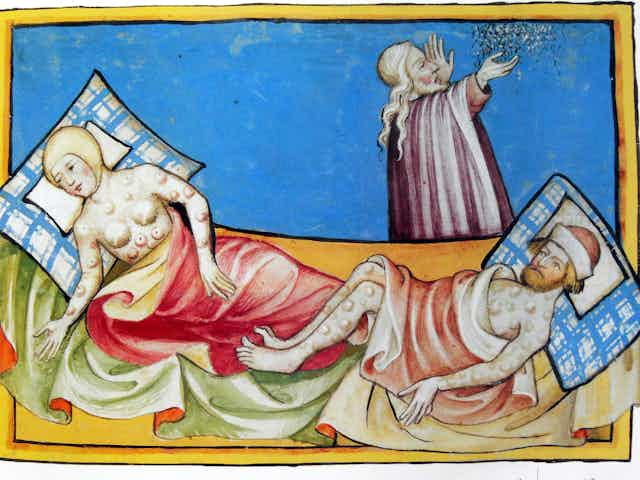Welcome to Recovery, a new series from The Anthill Podcast, exploring key moments in history when the world recovered from a major crisis or shock. In this first episode, we find out what happened after one of history’s worst epidemics, the Black Death.
The Black Death was the name given to the bubonic plague that hit Europe in the late 1340s. Somewhere between a third and a half of Europe’s population died from the disease.
Needless to say, this had a huge impact on those that survived – from living with PTSD to higher wages. Innovations and an outpouring of poetry followed the epidemic too, as people grappled with the changes that took place as a result.
We speak to three academic experts who’ve researched different elements of the Black Death and the period of history that followed. Adrian Bell tells us about the immediate aftermath of the disease in England. Workers could demand better pay because there were fewer of them to go around but the government tried to limit their new bargaining powers by introducing laws to limit pay and the amount people could move around for work.
Mark Bailey explains how different countries in Europe responded to the Black Death. The recovery ultimately took centuries, in part because of repeated outbreaks of the plague. But it marked an important turning point on the road to modernity. And Eleanor Russell tells us how the Black Death spawned a new wealthy, entrepreneurial elite. They were able to capitalise on the new normal and wield increasing influence over government policy.
This episode was produced by Josephine Lethbridge, Gemma Ware and Annabel Bligh, with sound design by Eloise Stevens.









